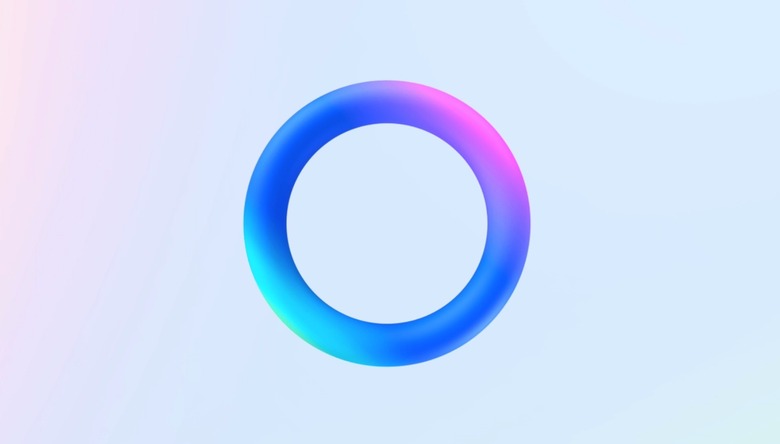Meta AI Assistant Has Entered The Chat With Claims Of More Advanced Intelligence
ChatGPT is probably the first generative AI product you think of when the genAI topic comes up, and that's because OpenAI was the first to roll out a chatbot that went viral. Microsoft followed with Bing Chat and turned it into Copilot. Google caught up with Bard and later renamed it Gemini. We also have Claude from Anthropic and Perplexity, to name just a few interesting AI projects out there.
While that happened, Meta had its own large language model out in the wild, Llama 2. Available as open-source, others could use the model to develop their own AI projects. But it never felt like a ChatGPT, Copilot, or Gemini competitor. That's even though Meta wanted to include its Meta AI assistant in all its products.
Fast-forward to mid-April and Meta AI has truly entered the chat. It will be available on Instagram, WhatsApp, Messenger, and Facebook. The Meta AI assistant also gets its own website, which will work just like ChatGPT. Add image generation support and real-time online search, and Meta AI is starting to resemble a major player in the AI field.
Mark Zuckerberg went as far as to say that the Llama 3 Meta AI model is the "most intelligent AI assisatnt that you can freely use."
It's all part of Meta's goal to build "the world's leading AI." And I think everyone else in the field should take notice. I've never been a big fan of Facebook, but I think they do have the ability and unique resources to create the world's leading AI.
Where can you use Meta AI?
The simplest way to experience Meta AI is to head to the brand new Meta.ai website at this link. It'll give you a ChatGPT-like experience, where you can talk to the chatbot with or without a Facebook account.
Zuckerberg said on Threads that Meta AI will also be available in the search boxes at the top of WhatsApp, Instagram, Facebook, and Messenger.
The problem with the wide Llama 3 Meta AI rollout is that it's not as wide as expected. It's unavailable in Europe and many other parts of the world. As Meta revealed, the rollout is rather limited. This Meta AI version is available in Australia, Canada, Ghana, Jamaica, Malawi, New Zealand, Nigeria, Pakistan, Singapore, South Africa, Uganda, Zambia, and Zimbabwe. That's on top of the US, of course.
What can Meta AI do?
If you've used ChatGPT and other genAI products, you should get an idea of what Meta AI can do. It'll answer all sorts of prompts, whether you chat with the chatbot on Meta.ai or the company's social networks. It'll search the web, solve problems, help you code, and generate lots of text to match your needs. You know, the works.
Additionally, Meta AI can create images just like ChatGPT, but with a big twist. It can generate images in real-time as you type your prompt. The Imagine feature will update the image as you type more details into your prompts, which is a huge advantage over ChatGPT.
Imagine will also handle text in images better, with text being an issue for other genAI products. And it'll let you edit and animate your own pictures. You'll essentially make your own GIFs, which might be exactly what your instant messaging game needs.
Meta AI will search the web using Bing or Google, per The Verge.
How good Llama 3 really is
Of course, Zuckerberg would say that his company's newest AI product is smarter than everyone else's. However the CEO offered insight into what Meta has done with Llama 3. It comes in three models, including 8B, 70B, and 400B+ parameter models. But only the first two are available right now.
Meta continues training the biggest model. Also, Zuckerberg teases that more releases are coming to "bring multi-modality and longer context windows" to its models.
Zuckerberg says the new 8B model is nearly as good as the largest Llama 2 model. He shared benchmarks showing that the model can outperform Gemini 1.5 in some tests.
The CEO also told The Verge that Lllama 2 trained on 2 trillion tokens (parts of a word). Llama 3 trained on over 15 trillion tokens.
AI training Meta AI
That's incredible enough to make anyone wonder what data Meta used to train Llama 3. Nobody would blame you if you thought Meta just mined data from the billions of people who use Facebook, Messenger, WhatsApp, and Instagram daily.
But that's not the case. The company didn't provide specifics but told The Verge it used a mix of "public" internet data and synthetic AI-generated data. Technically, everything one posts on Meta's social networks is part of the public internet.
More interesting, of course, is the claim that Meta is using AI to train Meta AI.
Meta plans to open-source the Llama 3 models. This will allow others to test them and judge their merits independently of marketing claims.
That said, Meta AI is officially here. It's ready to compete and has a massive advantage over rivals: Meta's huge social networks.




